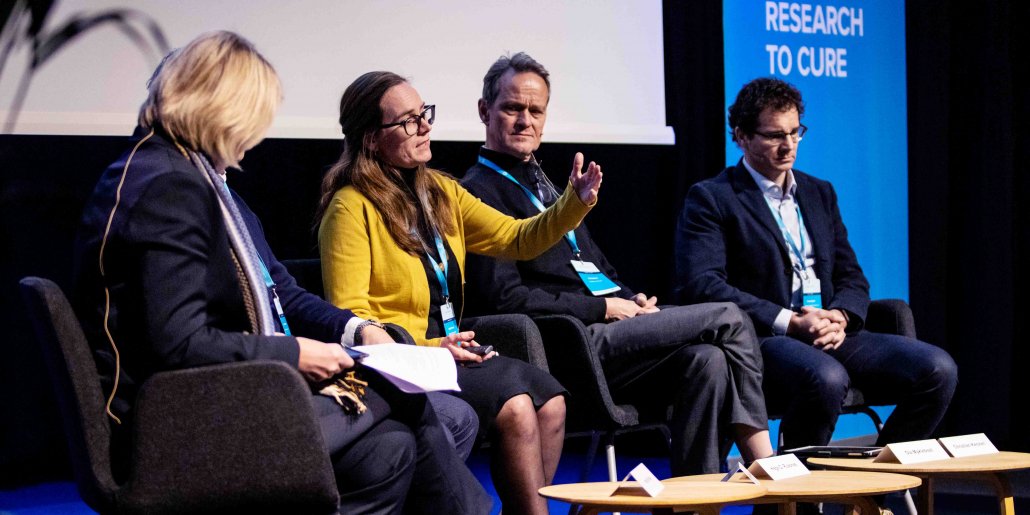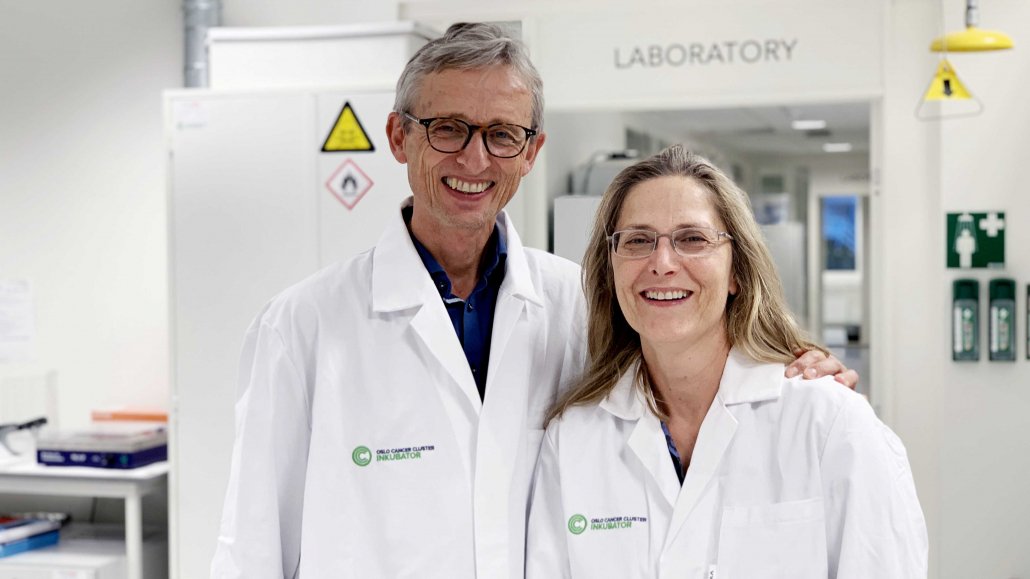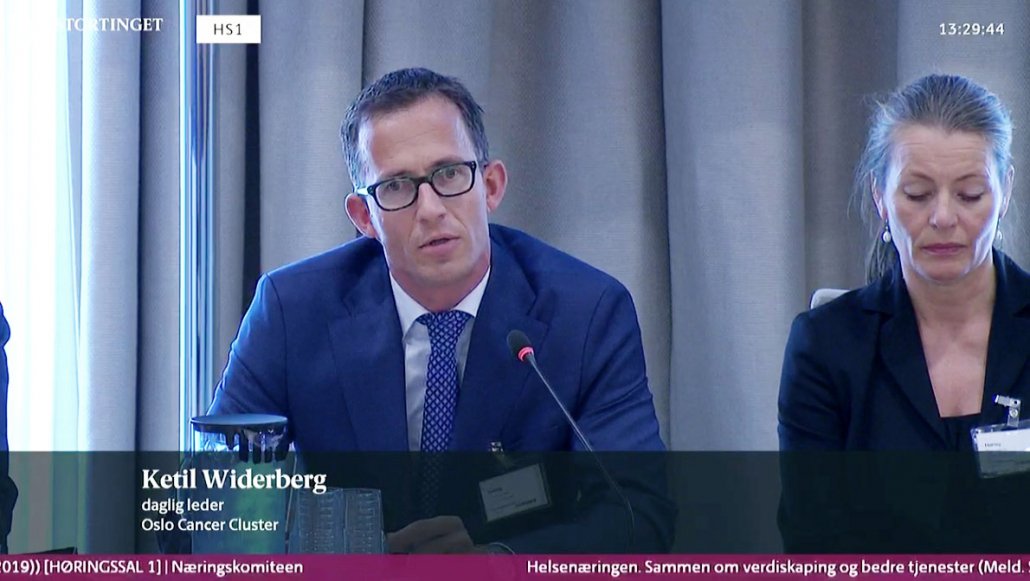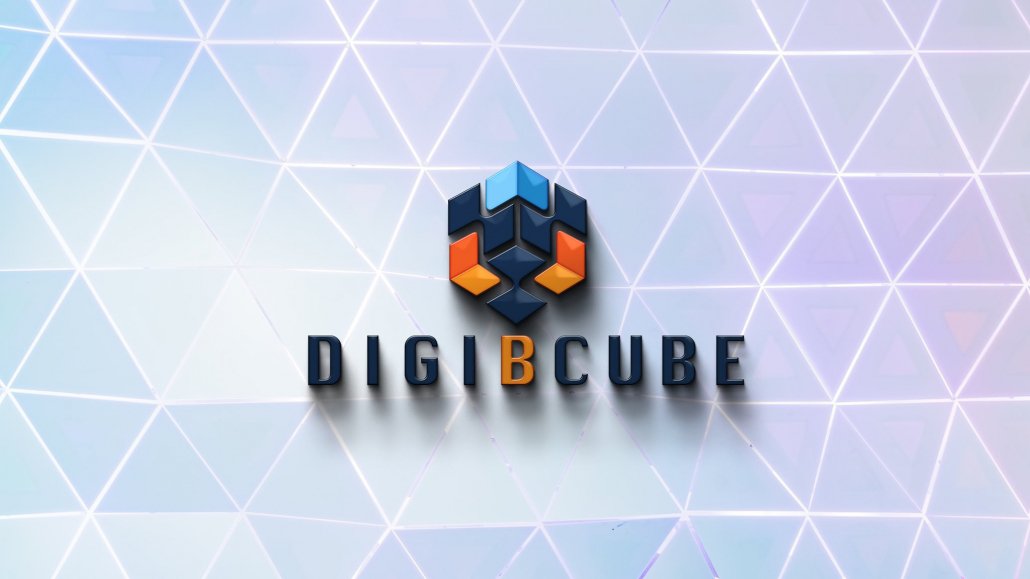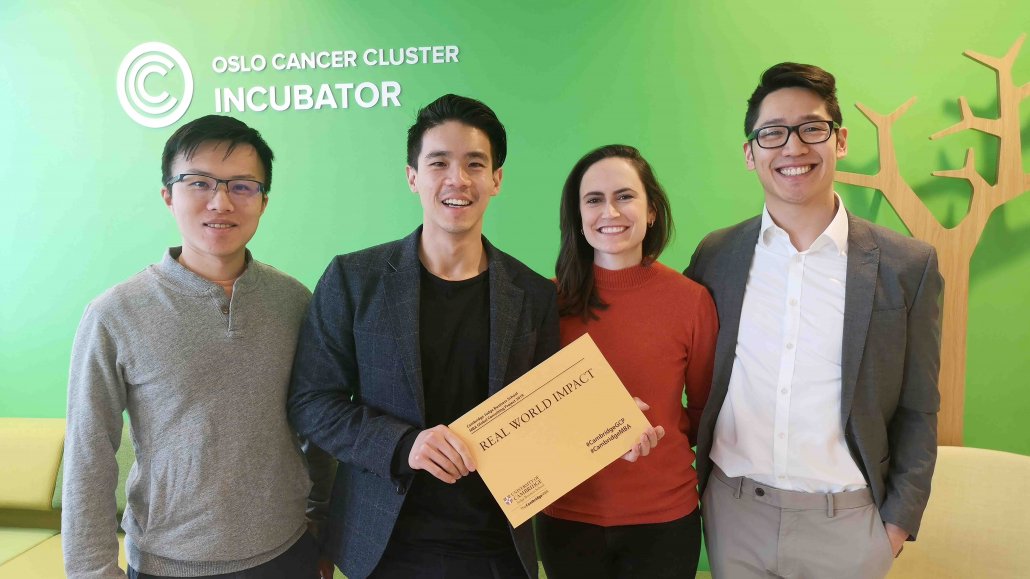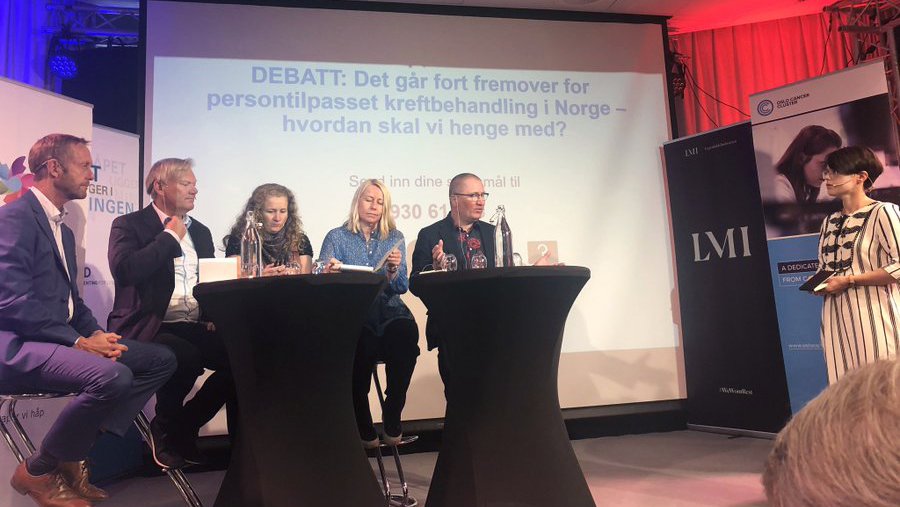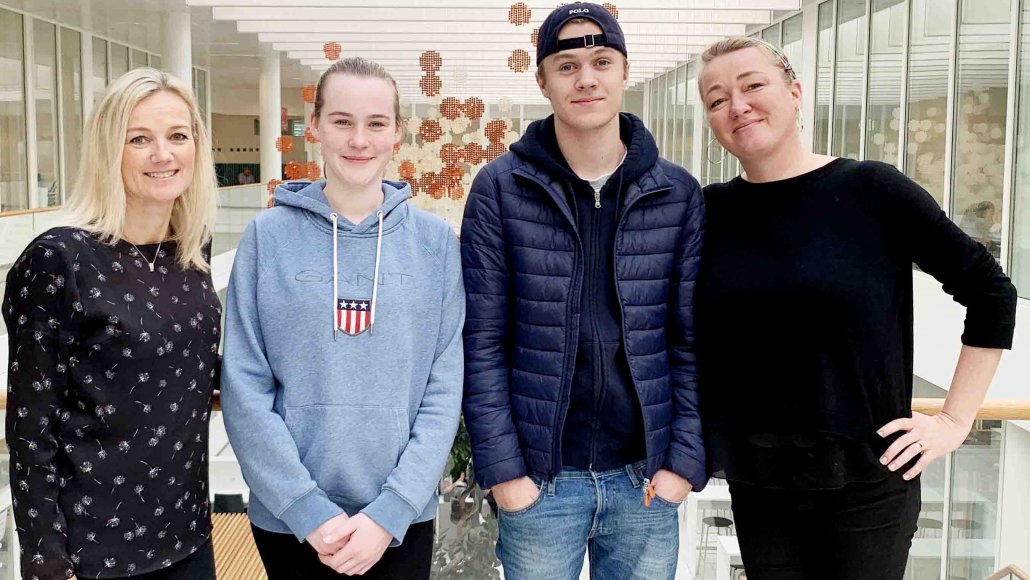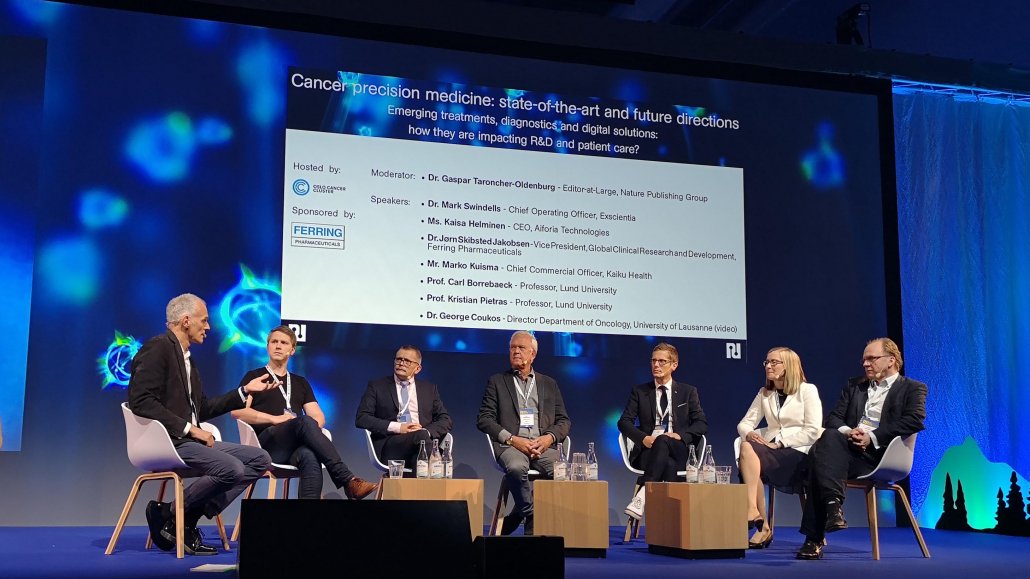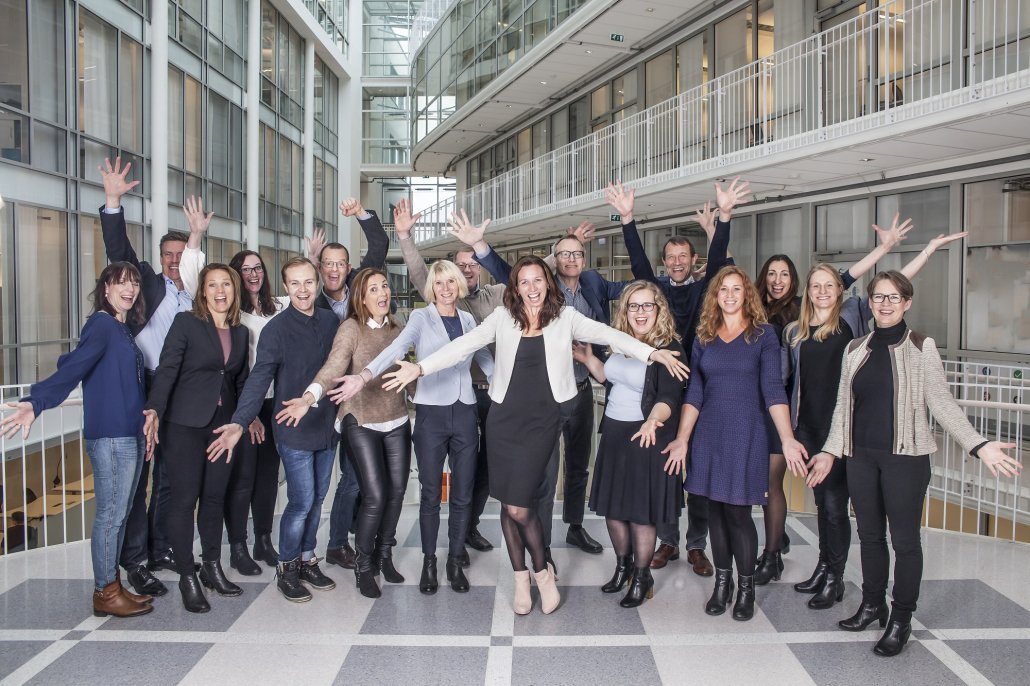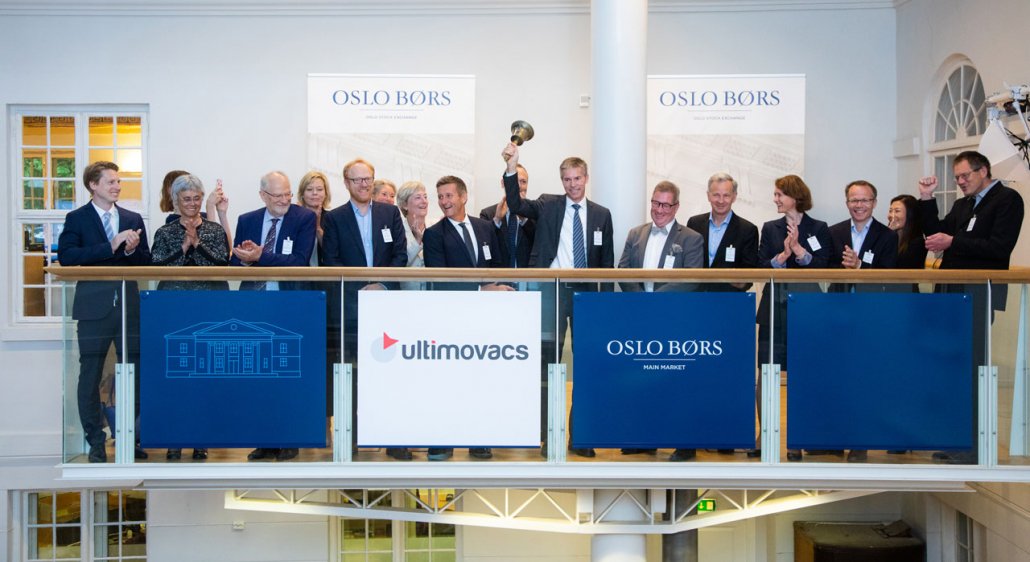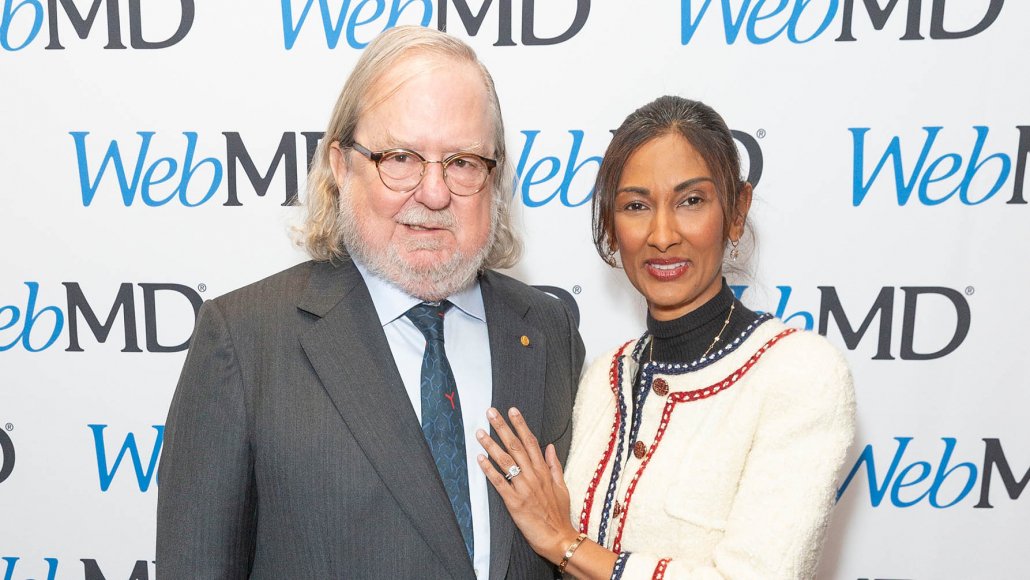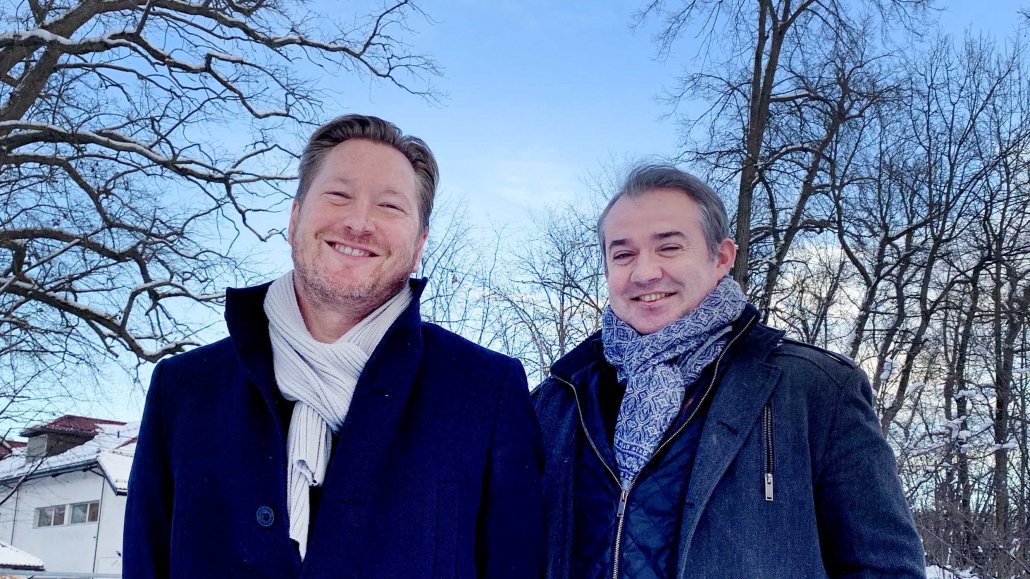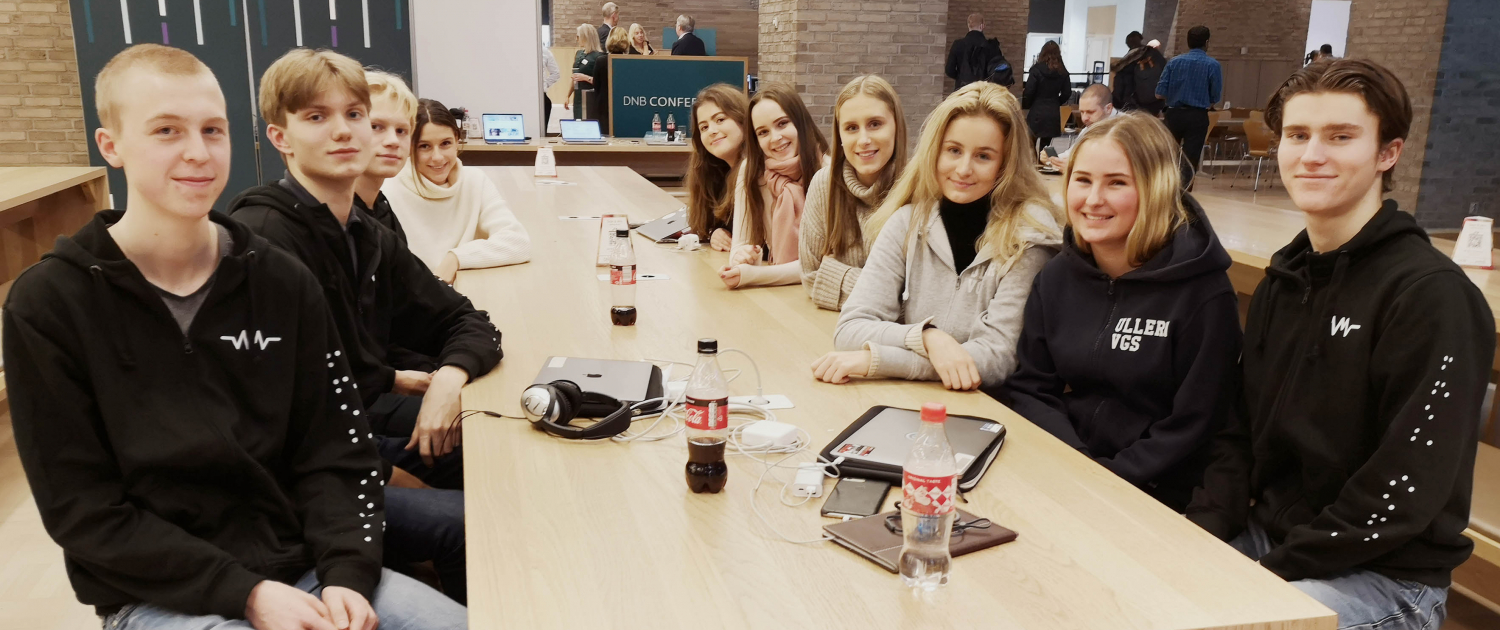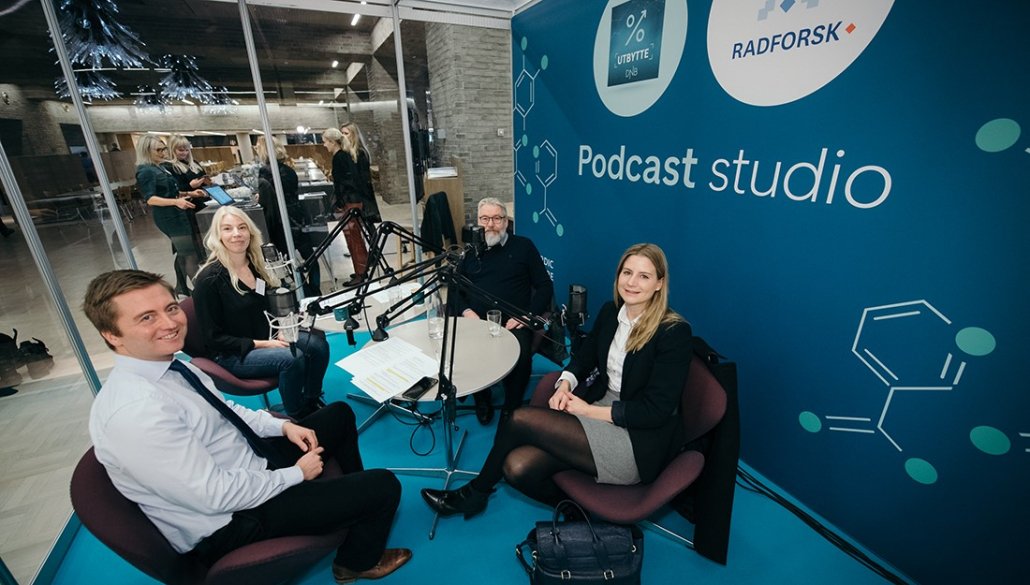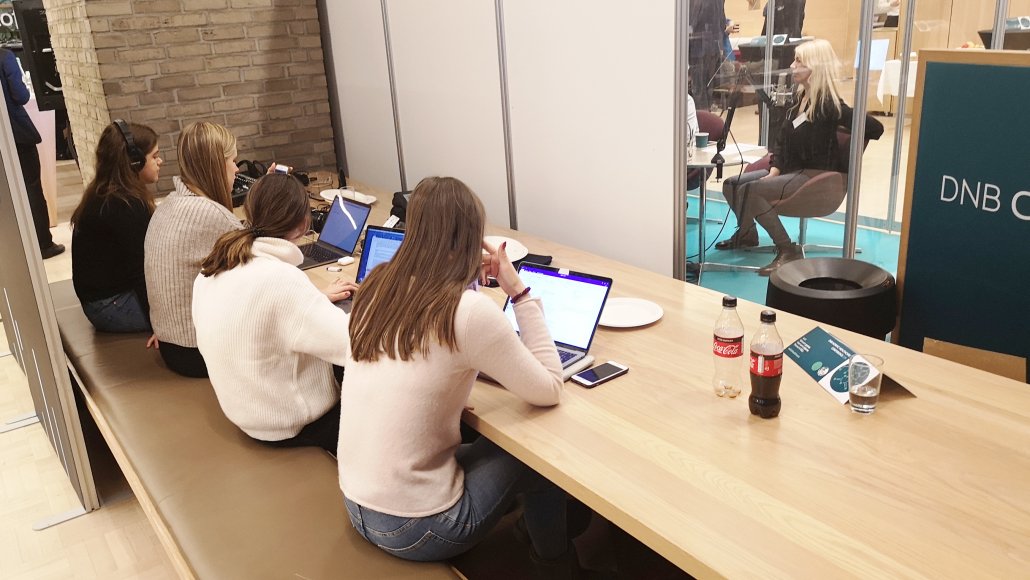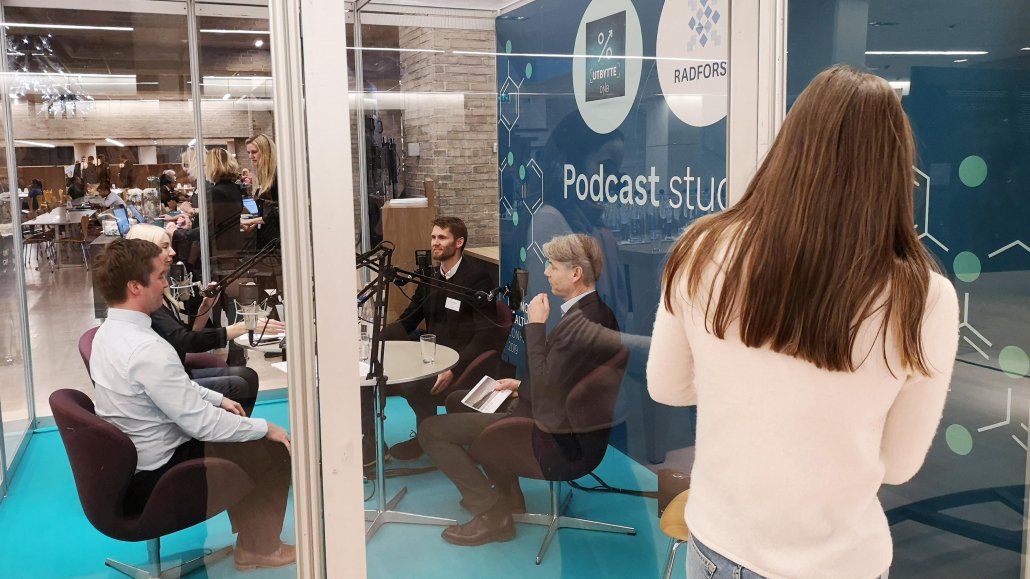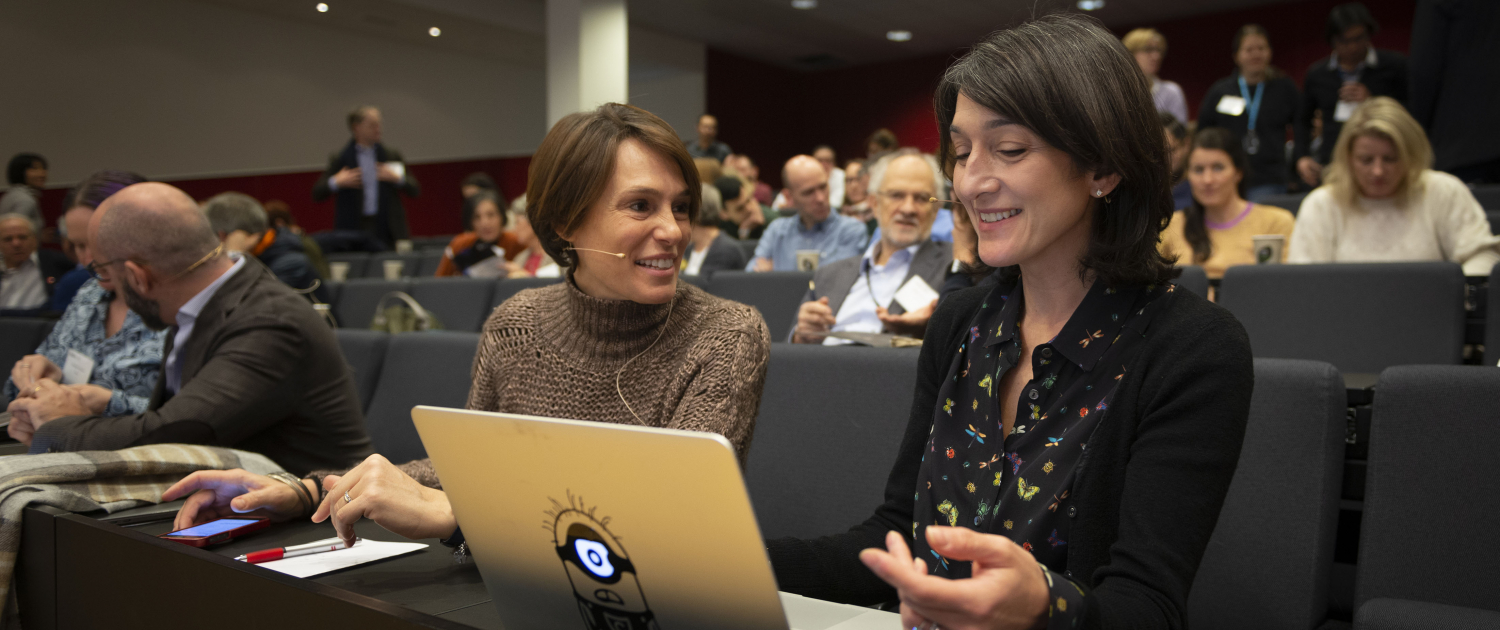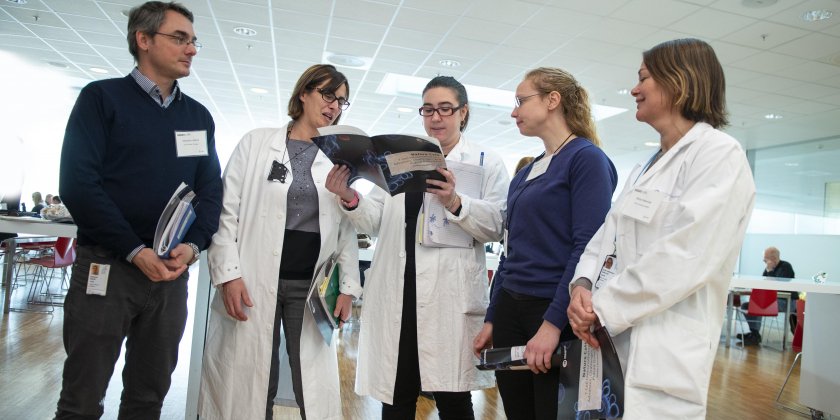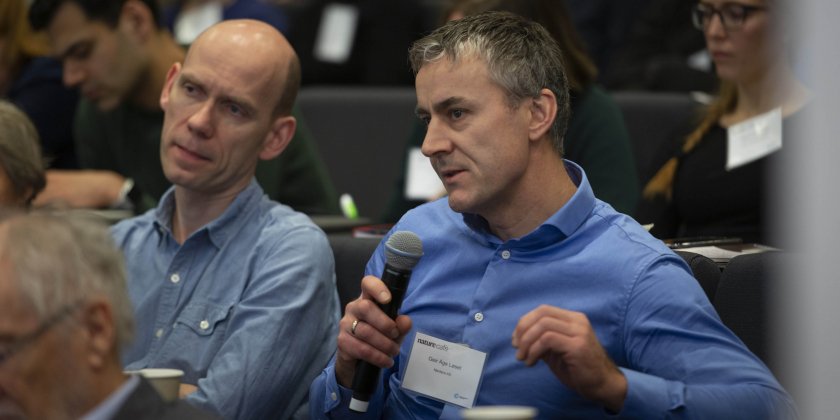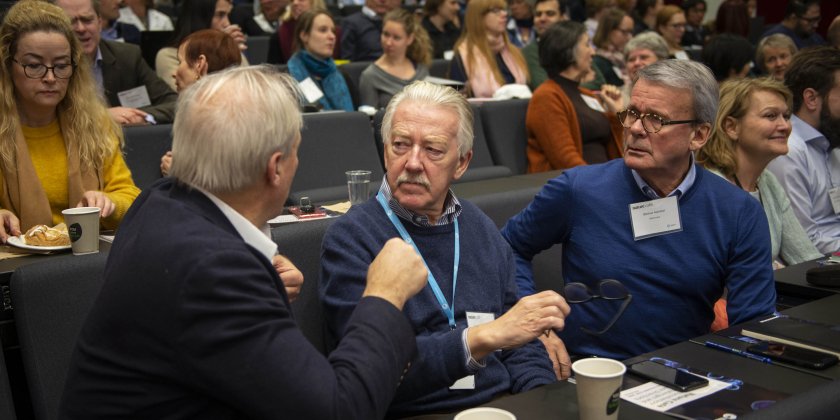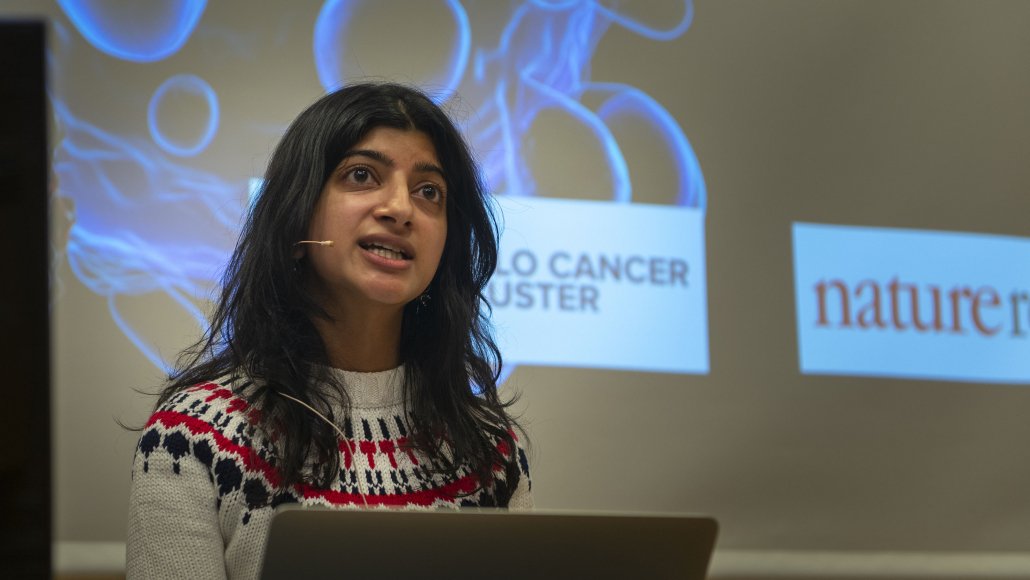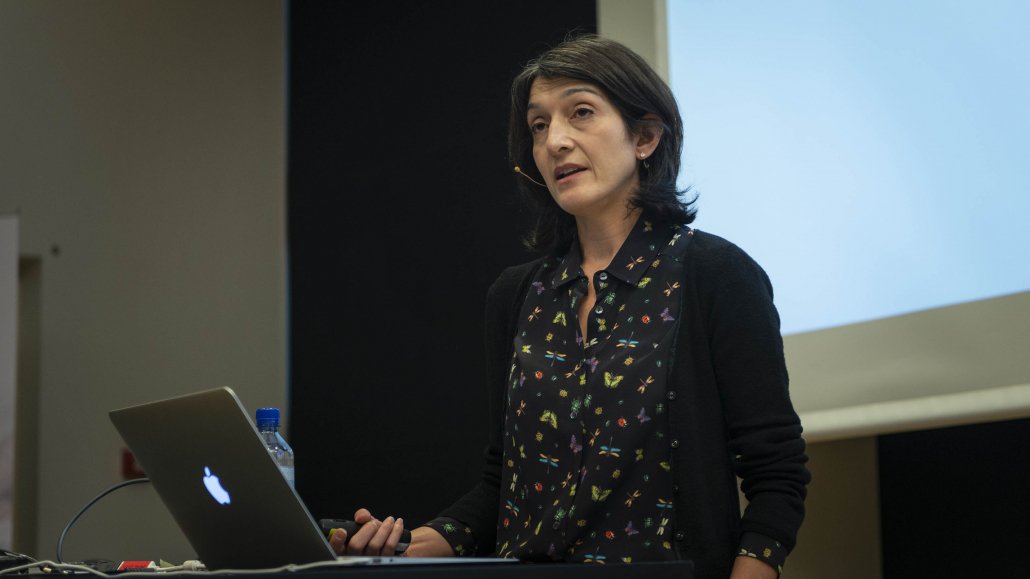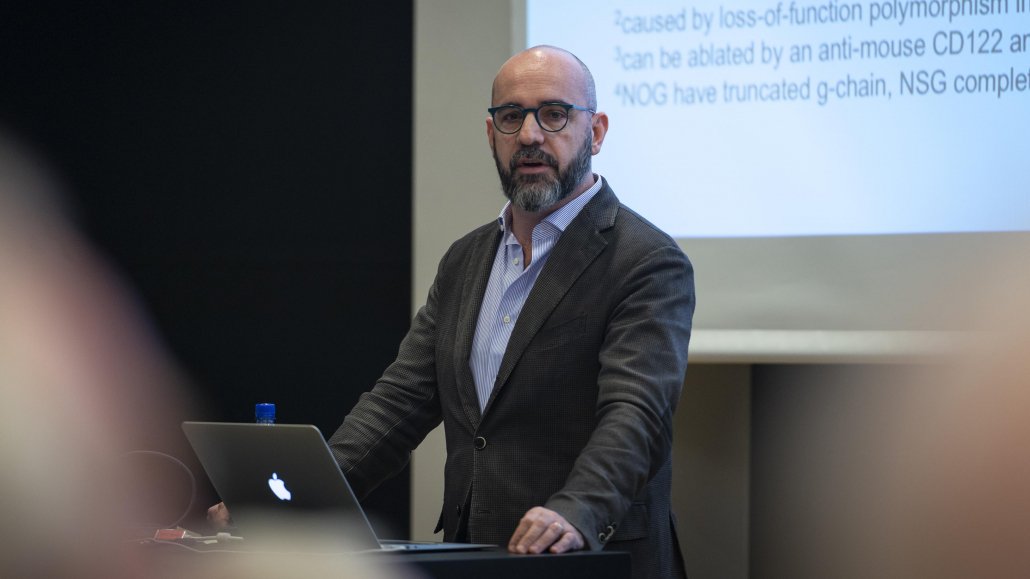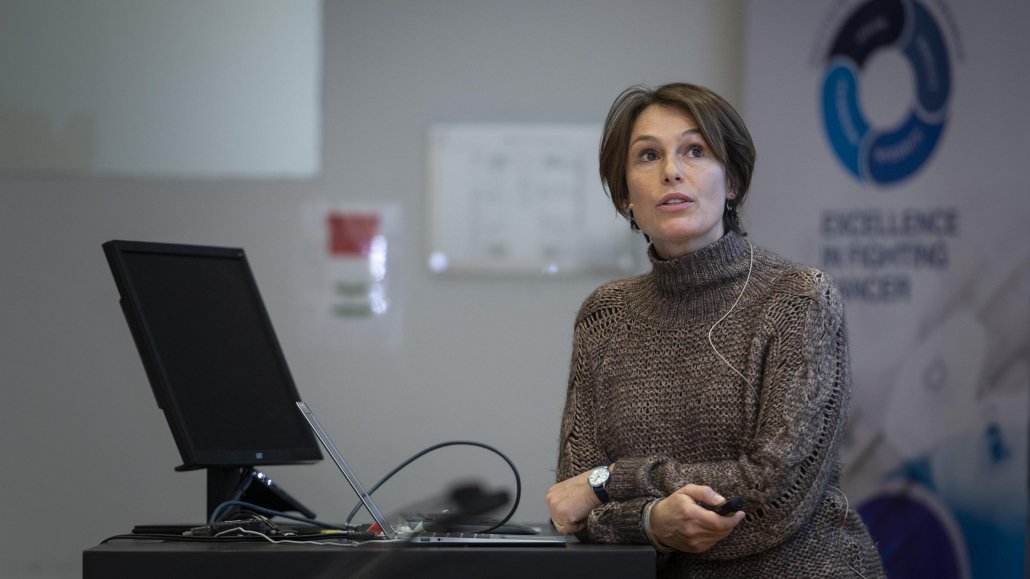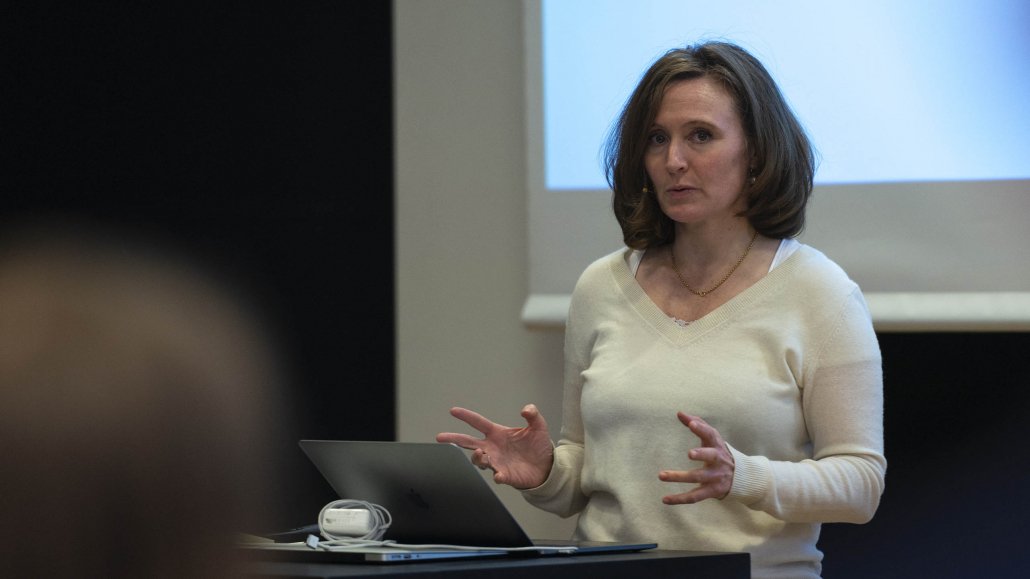Mentor meeting with Mester
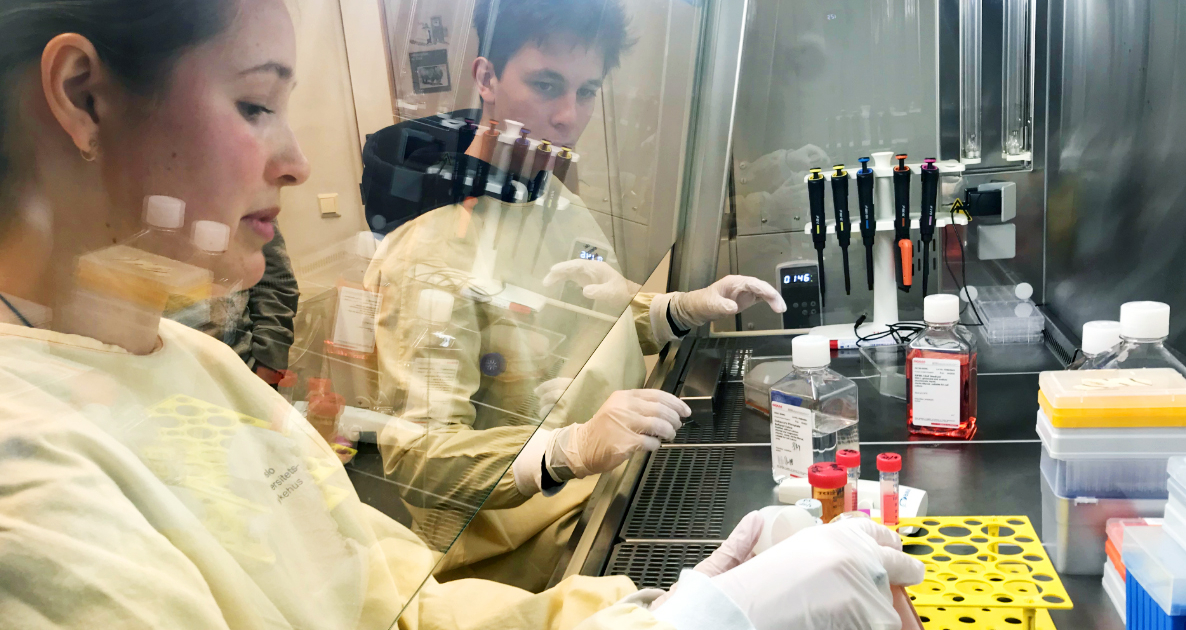
A few lucky Ullern students got to learn about cancer research from the PhD student Simone Mester at Oslo University Hospital.
The science and research programme at Ullern Upper Secondary School is completely new and the 32 students in the first class have received four mentors who will share their knowledge and experience with them. Early in December, the students were divided among the four mentors and got to visit them at their workplaces to hear more about what they do.
Simone Mester is a former student of Ullern Upper Secondary School and is today a cancer researcher at Rikshospitalet (Oslo University Hospital). Along with the three other mentors from the Oslo Cancer Cluster ecosystem, she has agreed to be a mentor for the students of the science and research programme at Ullern. Earlier in December, eight students visited her at her job.
“This is where I work,” Simone said as we arrived at the Institute for Immunology, which is located right next to Rikshospitalet.
Simone began the visit by telling the students about her background and the road that led her to where she is today.
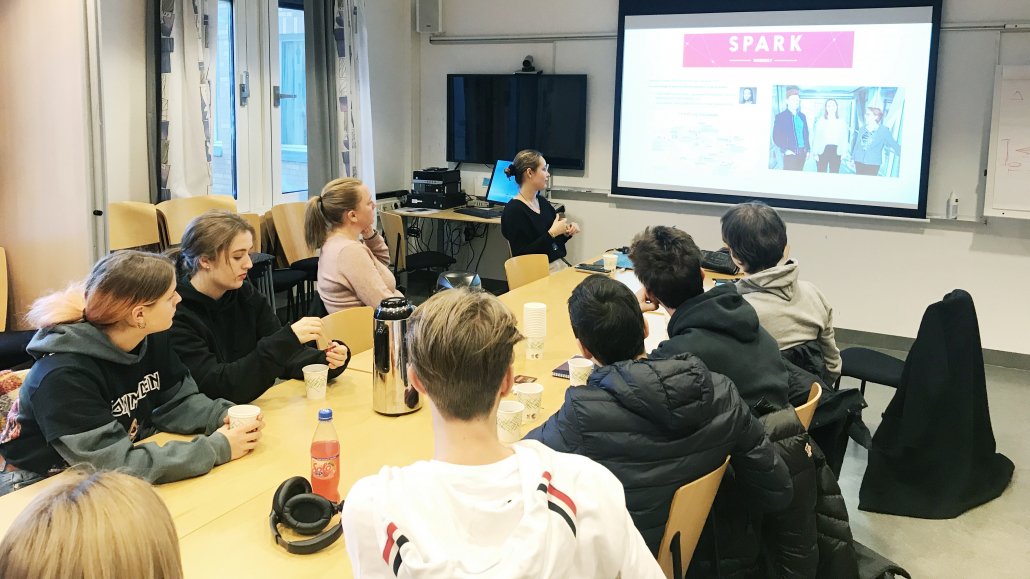
Simone Mester (above to the left) tell the Ullern students that she is part of the SPARK programme at the University of Oslo. Photo: Elisabeth Kirkeng Andersen
“I graduated from Ullern in 2012. That is when I got to do two work placements at the Radium Hospital – in Clinical Radiation Biology and Tumour Biology. That was the first time I got an impression of what everyday life for a researcher can be like and it was exciting!” said Simone.
She says that she combined the subjects mathematics, physics, chemistry and biology so that she would be able to study medicine. But as the application date drew closer, she became more and more unsure.
“I talked with Ragni, who is your teacher too, and she recommended that I study molecular biology at the University of Oslo. At the time, I didn’t fully understand what I was getting myself into and especially why I had to study all that physics,” said Simone.
During the course of her bachelor degree, Simone was still unsure and spent a lot of time with advisers at the Institute of Biology to get guidance on the best way forward. She decided to study a master degree and was included in a research group led by professors Inger Sandlie and Jan Terje Andersen, where she remains today as she is completing her PhD.
Researching new cancer medicine
“During my master degree, I wrote about how to tailor the duration of the effect of medicines and pharmaceuticals, and that is what I am still researching in my PhD. A lot of my time here is in the laboratory, where I am planning and conducting experiments on cells and mice, to see if I can achieve what I want,” Simone said.
“Now, I will show you what I spend most of my time on. It is about making proteins, so now I will show you the principal, and afterwards you can try to do the same in the lab. Moreover, you will meet a master student, Anette Kolderup, who will tell you about CRISPR,” said Simone.
Quickly and pedagogical she shows the students the principals for modifying proteins through DNA modification, growing, amplifying and splitting cells.
“Now we will go to the lab, so you can try this yourselves,” said Simone.
We go one floor up, where there are offices and laboratories. The four girls go to Anette, who will show them what CRISPR is and how she uses the method in her master thesis, while the boys will start in the cell lab to make the same experiment that Simone just showed them.
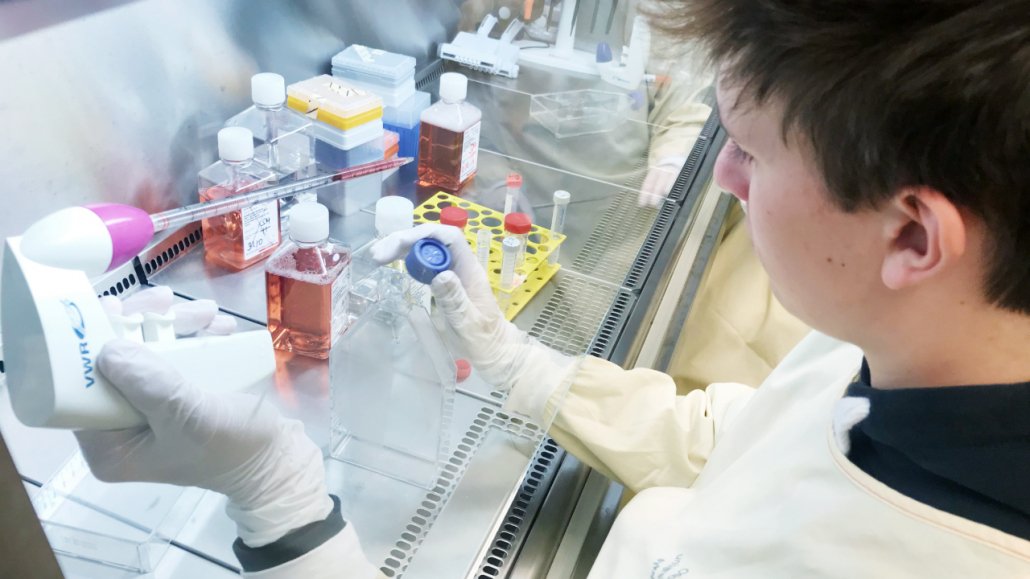
Aleksander tries to handle the pipette when he is working in the lab together with Simone. It is important to have a steady hand. Photo: Elisabeth Kirkeng Andersen
“Inside this hood, the work environment is completely sterile, so you need to wear lab coats and sanitize all the equipment and keep it inside the hood while we are working,” Simone explained.
Aleksander is the first to try and Simone shows him step by step how he can retrieve the proteins from a bottle she has prepared. Everyone soon understands that lab work is a craft that requires skillful hands. It is important to stay focused and remember which solutions that should be added and how, and when the pipettes should go on or off. Aleksander laughs when he has to change an unused pipette that he has touched, even with gloves on it is not allowed.
Then the students switch places and everyone gets to try their hands at everything. Two hours pass by quickly and a very happy group of students with their teacher Ragni leave to go home again.



